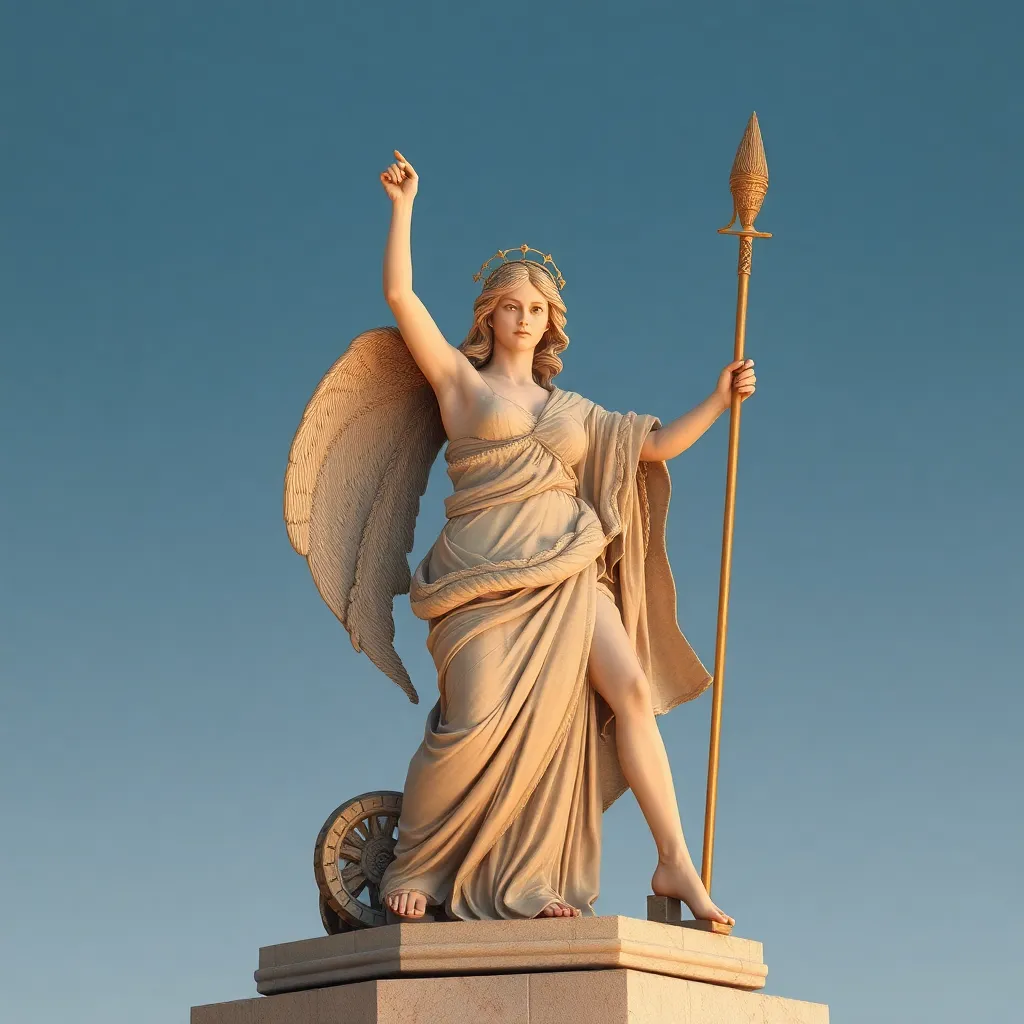The Influence of Artemis on Ancient Greek Literature
I. Introduction
Artemis, the daughter of Zeus and Leto, is one of the most revered deities in Greek mythology. Known primarily as the goddess of the hunt, wilderness, and childbirth, her multifaceted nature has captivated the imagination of ancient poets and storytellers alike. As a character embodying independence, strength, and connection to nature, Artemis serves as a powerful symbol in various literary works. This article will explore her influence on ancient Greek literature, examining her portrayal across different genres and her lasting impact on storytelling.
II. Artemis: The Goddess of the Hunt and Wilderness
Artemis is characterized by several key attributes and symbols that define her essence. Often depicted with a bow and arrows, she is associated with the wild, embodying both the beauty and danger of nature. Her connection to animals, particularly deer, emphasizes her role as a protector of wildlife and the natural world.
In the Greek pantheon, Artemis holds a prominent position, often revered alongside her twin brother Apollo. She represents the dichotomy of femininity — nurturing yet fierce, gentle yet formidable. This complex nature allows her to resonate with themes of independence and empowerment.
The goddess’s connection to nature extends to her role as a protector of young women and children, symbolizing purity and the transition from girlhood to womanhood. Her presence in literature often reflects these themes, highlighting the intricate relationship between the divine and the natural world.
III. Artemis in Homeric Epics
Artemis’s influence is notably present in the Homeric epics, “The Iliad” and “The Odyssey.” In “The Iliad,” she is depicted as a fierce warrior goddess who supports the Trojans and is associated with the hunt. Her presence amplifies the themes of divinity and fate, showcasing how the gods directly influence human affairs.
In “The Odyssey,” Artemis’s role is more subtle but equally significant. She is invoked in context with themes of chastity and protection. The goddess’s influence on characters such as Odysseus and Telemachus illustrates the interplay between human actions and divine will, emphasizing the moral and ethical dilemmas faced by mortals.
The portrayal of Artemis in these epics serves to deepen the narrative, intertwining human struggles with divine intervention, and reflecting the beliefs of ancient Greek society regarding the gods’ omnipresence in everyday life.
IV. Mythological Narratives Featuring Artemis
Several key myths involve Artemis, showcasing her complex nature and moral lessons. One of the most famous tales is that of Actaeon, a hunter who accidentally spied on the goddess while she bathed. In retribution, Artemis transforms him into a stag, where he is ultimately hunted down by his own dogs. This myth conveys themes of respect for boundaries and the consequences of hubris.
Another significant narrative is the story of Orion, a giant huntsman who boasted of his prowess. Various versions depict Artemis killing Orion either out of jealousy or as a means of protecting nature. This myth reflects the delicate balance of power between gods and mortals and the consequences of arrogance.
The moral and ethical lessons embedded in these myths significantly influenced later literary works, providing cautionary tales that resonate through the ages. The legacy of these narratives continues to inspire adaptations and reinterpretations in modern literature.
V. Artemis in Tragedy and Comedy
Artemis’s representation in Greek tragedies often highlights her role as a vengeful goddess. In works by playwrights such as Euripides, she embodies themes of retribution and justice. For instance, in “Iphigenia in Aulis,” Artemis demands a sacrifice to allow the Greek fleet to sail, reflecting the harsh realities of divine expectations.
Conversely, Artemis also appears in comedic works, where her character can be portrayed with a lighter touch. In comedies, she may symbolize the absurdities of human behavior in relation to the divine. This juxtaposition of her portrayal in serious versus light-hearted contexts illustrates the versatility of her character and the various interpretations by playwrights.
VI. Influence on Later Literary Works
The legacy of Artemis extends beyond ancient Greece into Hellenistic and Roman literature. In these later works, her character often evolves, reflecting the changing cultural attitudes towards femininity and divinity. Adaptations and reinterpretations of Artemis can be found in various art forms, including poetry, drama, and visual arts.
- In Ovid’s “Metamorphoses,” Artemis’s tales are reimagined, showcasing her as a complex figure navigating love and vengeance.
- Renaissance literature often revisits Artemis, framing her as a symbol of chastity and female virtue.
Modern literature also draws inspiration from Artemis, exploring themes of empowerment and nature. Authors such as Margaret Atwood and Madeline Miller have reinterpreted her character, highlighting her relevance in contemporary discourse.
VII. Artemis as a Symbol of Female Empowerment
Analyzing Artemis as a figure of independence and strength reveals her significance in feminist interpretations of literature. She stands as a symbol of female autonomy, rejecting the traditional roles assigned to women in ancient Greek society. Her refusal to conform to societal expectations of marriage and motherhood makes her an enduring icon of feminist thought.
Contemporary reflections on Artemis often explore her as a representation of resilience and empowerment, challenging patriarchal narratives. In literature, she embodies the struggle for women’s rights and autonomy, inspiring modern authors to reclaim her story and celebrate her strength.
VIII. Conclusion
In summary, Artemis’s significance in ancient Greek literature is profound and multifaceted. She serves as a powerful symbol of nature, femininity, and strength, influencing characters and narratives across various genres. Her enduring legacy continues to inspire modern interpretations, affirming her relevance in contemporary literature.
As we explore the stories of Artemis, we uncover the complexities of human experience intertwined with divine influence, highlighting the timeless nature of her character and the lessons she imparts. Artemis remains a vital figure in the discourse of literature, reminding us of the enduring power of storytelling and the importance of female representation.




